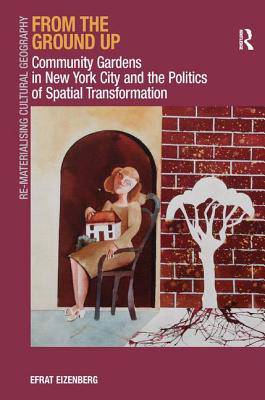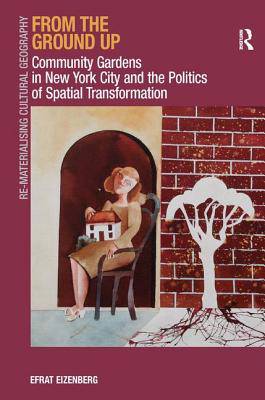
Bedankt voor het vertrouwen het afgelopen jaar! Om jou te bedanken bieden we GRATIS verzending (in België) aan op alles gedurende de hele maand januari.
- Afhalen na 1 uur in een winkel met voorraad
- In januari gratis thuislevering in België
- Ruim aanbod met 7 miljoen producten
Bedankt voor het vertrouwen het afgelopen jaar! Om jou te bedanken bieden we GRATIS verzending (in België) aan op alles gedurende de hele maand januari.
- Afhalen na 1 uur in een winkel met voorraad
- In januari gratis thuislevering in België
- Ruim aanbod met 7 miljoen producten
Zoeken
From the Ground Up
Community Gardens in New York City and the Politics of Spatial Transformation. Efrat Eizenberg
Efrat Eizenberg
€ 305,45
+ 610 punten
Uitvoering
Omschrijving
Little-known, and hidden between skyscrapers and wide avenues, some 650 community gardens dot New York City. Set within one of the densest and most expensive real estate markets, these gardens are attended by some of the least advantaged residents of the city. Urban residents use these spaces for horticulture, recreation, social gatherings, and artistic and cultural events. They manage the gardens collectively and with relative independence from top-down control. Despite continuous threats from market forces the gardens have been able to thrive as significant community spaces since the 1970s. This book shows how, in the process of attempting to protect these highly contested spaces, residents developed as community leaders and urban activists. Taking an interdisciplinary approach to follow the political development of urban residents, the book examines how everyday spatial practices, social interactions, the production of alternative urban space, and the generation of new urban knowledge render community gardeners into important social actors in the urban scene. The book argues that with this process of production of space a new type of 'organic resident' evolves. These urbanites constantly engage with their urban environment, find ways to make the city more supportive for their collective needs, and produce the city in their own image. Community gardeners as organic residents claim their right to the city, act to materialize their vision of the city, and utilize the special potential of the locale to constitute themselves as powerful social actors on the urban scene.
Specificaties
Betrokkenen
- Auteur(s):
- Uitgeverij:
Inhoud
- Aantal bladzijden:
- 218
- Taal:
- Engels
- Reeks:
Eigenschappen
- Productcode (EAN):
- 9781409429098
- Verschijningsdatum:
- 8/01/2013
- Uitvoering:
- Hardcover
- Formaat:
- Genaaid
- Afmetingen:
- 156 mm x 234 mm
- Gewicht:
- 485 g

Alleen bij Standaard Boekhandel
+ 610 punten op je klantenkaart van Standaard Boekhandel
Beoordelingen
We publiceren alleen reviews die voldoen aan de voorwaarden voor reviews. Bekijk onze voorwaarden voor reviews.









